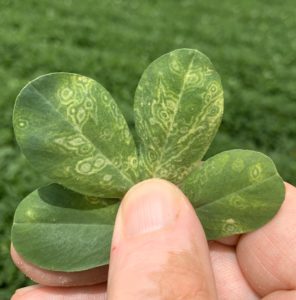Tifton, GA |
With Georgia growing six times more peanuts that any other state in the country, keeping those farmers up to date on the latest research, technology and equipment is vital for the health of the industry as a whole. Events like the Georgia Peanut Farm Show help accomplish this by gathering all those involved under one roof.
“Number one, it’s very good information. It’s a chance for farmers to get together and rub elbows with their neighbors and friends that they may not have seen from people come from all over the state and the Southeast, but you also get to see the latest and greatest in machinery, technology, chemicals, and peanut production practices. We’ve got Scott Monfort is going to lead our production session, and we’ve got a seed session. It helps to just give us an opportunity,” says Joe Boddiford, Chairman of the Georgia Peanut Commission.
Even though the number of acres dedicated to peanuts in Georgia remain high, yields did take a major hit in 2024, thanks in large part to the unpredictable climate.
“Weather for the last two years have taken some yield from us. This past year has taken more than it has in a long time. You know, we lost some top end irrigated yields in ’23 of about a thousand pounds. This year, fifteen hundred pounds or better and across the state when you look at the state average, we didn’t move that much in ’23. We were at forty-one hundred and something. This year, we dropped down to thirty-eight fifty, and that’s the lowest we’ve been in twenty years,” says Scott Monfort, Extension Peanut Agronomist.
With that in mind, growers must now walk a fine line in 2025 between cutting costs and maximizing production.
“We know you need to make change. We know you need kind of cut back if you can, but the biggest thing is we know you need to make money. That’s the highest yields possible. And what we’re here trying to get them to understand is that it’s easy to say I’m going to cut this out, this out and this out. And that’s going to save me money, but in retrospect, every time you cut something, it’s going to affect your yield or potentially affect your control of a pest that affects your yield,” says Monfort.
The silver lining created by that drop in numbers is a potential for the prices to remain steady through these uncertain times.
“We did get lucky by not producing as much in the state of Georgia. So, that kind of helped us potentially. I’m not going to say it is, but it potentially did. If we would have yielded forty-one, forty-two hundred pounds, we know where we would be this year. It would be starting way low. I’m hoping that’s not going to be the case this year and we can at least keep that price up to where we can at least pay some returns back on our investment,” says Monfort.
As for advice to growers preparing for the new year, Monfort suggests working with your local county extension and sticking with the basics.
“The main thing is don’t forget your base programs. Make sure fertility, fungicides, pest management, lyme, calcium, the things you need to do, let’s make sure we do them and we’ll be okay,” says Monfort.
By: Damon Jones


